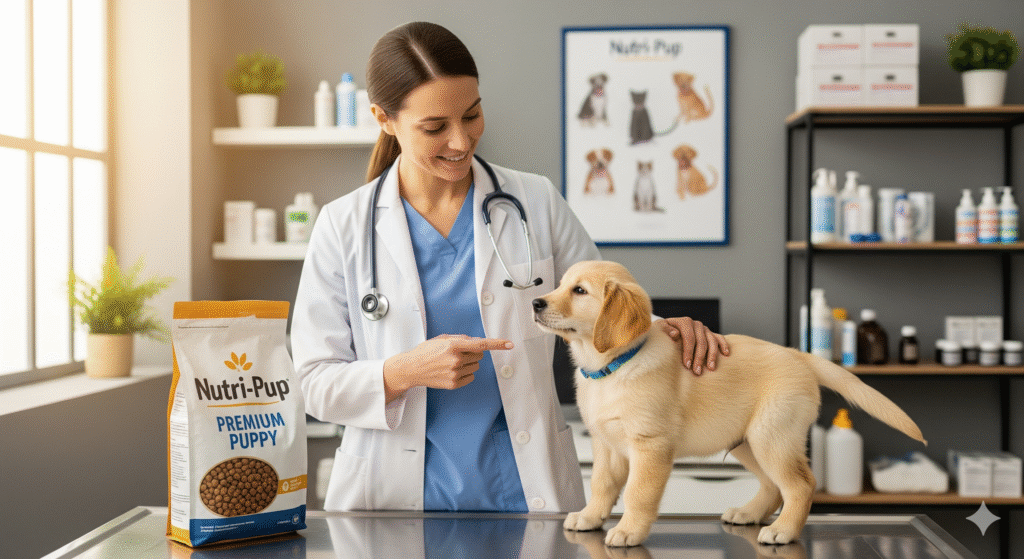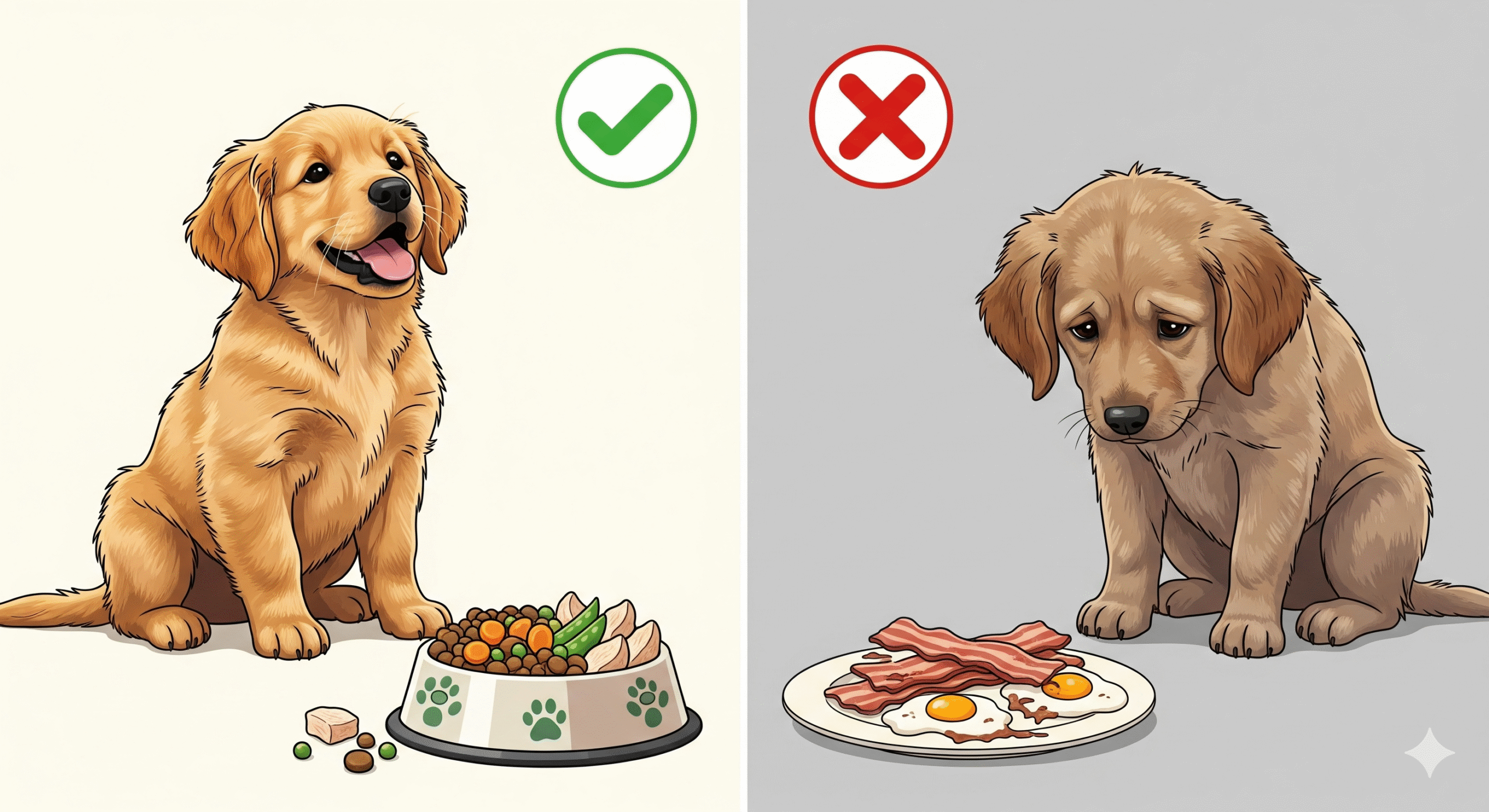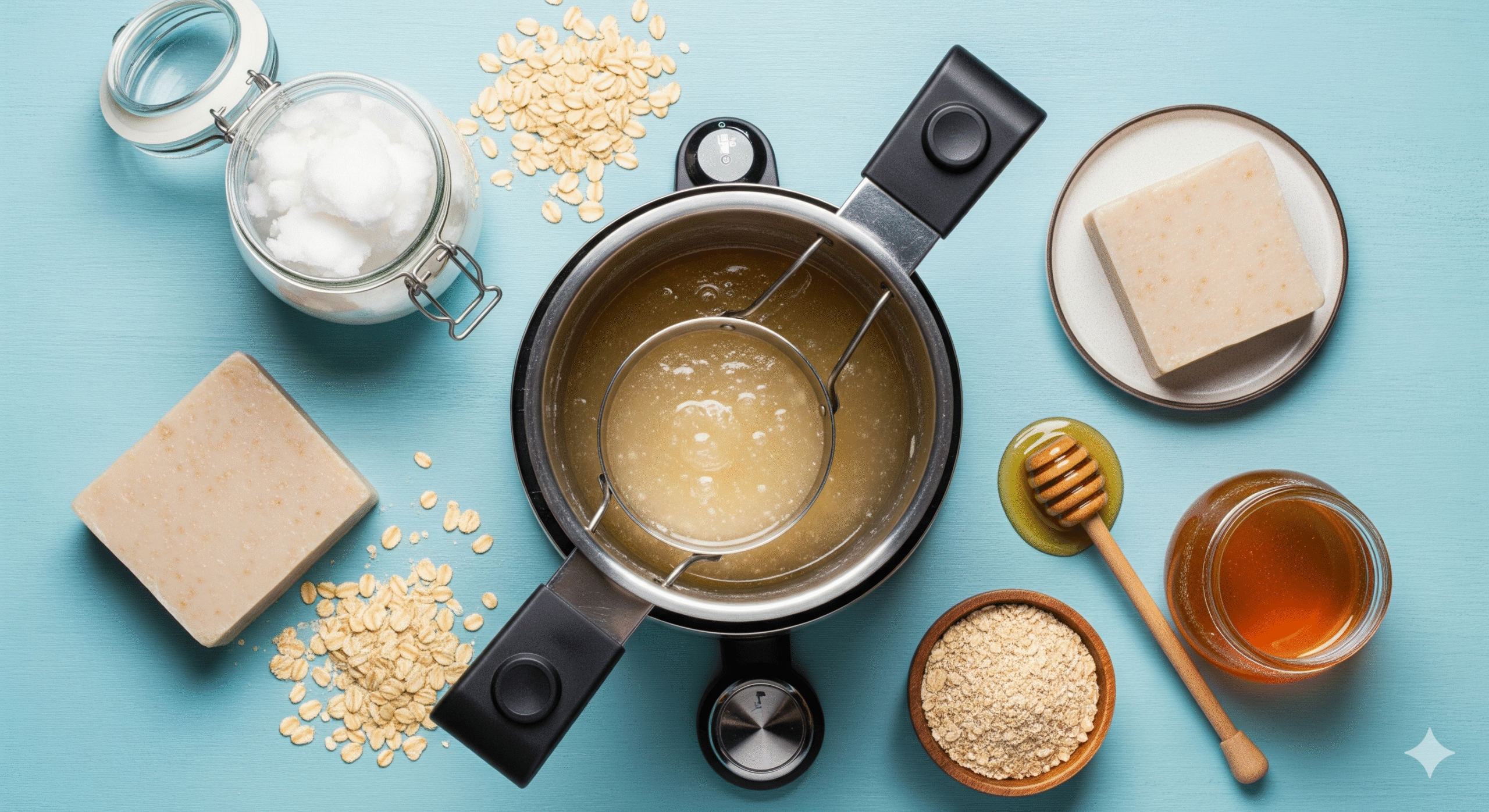The ketogenic diet has taken the human health world by storm, praised for its weight loss and metabolic benefits. It’s natural for devoted pet parents to wonder if this high-fat, low-carb approach could also be a “health hack” for their furry family members. But when it comes to a keto diet for puppies, the veterinary consensus is not just skeptical—it is overwhelmingly opposed. 🚨
Puppies are not tiny adults; they are dynamic organisms undergoing critical growth and development. Their nutritional needs are vastly different, and a dietary misstep during this fragile period can lead to lifelong health consequences. This article will dive deep into the science of puppy nutrition, explain why the keto diet is a dangerous mismatch, and provide vet-approved guidance for fueling your puppy’s healthy growth.
What is a Ketogenic Diet, Exactly? 🔬
To understand why it’s wrong for puppies, we must first define the diet. A ketogenic diet is a very low-carbohydrate, high-fat, and moderate-protein eating plan. Its primary goal is to force the body into a metabolic state called ketosis.
In ketosis, the body is deprived of its preferred energy source—glucose from carbohydrates—so the liver begins to break down fat into molecules called ketones, which the brain and other organs then use for fuel.
While this process can be managed safely under medical supervision in certain humans for specific conditions, it is a stress response in the body. For a growing puppy, inducing this state is not just unnecessary; it is potentially harmful.
The Puppy Growth Engine: Why Carbs Are NOT the Enemy 🏗️
The core premise of applying a human keto diet to puppies is flawed because it incorrectly vilifies carbohydrates. For puppies, carbohydrates are not filler; they are a crucial, efficient fuel source.
- Rapid Growth Requires Readily Available Energy: Puppies have immense energy demands. Their bodies are building bone, muscle, nervous tissue, and organs at an astonishing rate. Glucose from carbohydrates provides the most immediate and efficient energy for this intense anabolic process.
- Brain Development: The developing puppy brain relies heavily on glucose for optimal function. While the brain can adapt to use ketones, this is not its preferred or most efficient fuel source during critical developmental windows.
- Gut Health: Certain fibers and fermentable carbohydrates are essential for maintaining a healthy gut microbiome, which in turn supports the immune system and overall health.
Veterinary Insight: As stated by the American Kennel Club (AKC), “Dogs are not carnivores, but they are not omnivores either… This means that dogs can digest and utilize carbohydrates as a energy source effectively.” Denying them this key macronutrient during growth is counterproductive.
The Severe Risks of a Keto Diet for Puppies ⚠️
Implementing a keto diet for puppies is not a neutral act; it actively deprives them of what they need and exposes them to significant risks.
1. Stunted Growth and Developmental Abnormalities
Without sufficient glucose from carbohydrates, the body will seek energy elsewhere. It can start breaking down proteins for energy through a process called gluconeogenesis.
- The Consequence: This means the very protein that should be building muscle, bone, and tissue is being diverted and burned for fuel. This can lead to poor muscle development, weak bones, and overall stunted growth.
2. Nutritional Deficiencies and Imbalances
Puppies require a precise balance of vitamins and minerals for proper development. Commercial puppy foods are scientifically formulated to meet these strict standards (like AAFCO guidelines for “growth”).
- The Consequence: A homemade or improperly formulated keto diet is almost guaranteed to be deficient in key nutrients like calcium, phosphorus, vitamin D, and certain B vitamins. An imbalance in calcium and phosphorus, for example, can cause severe skeletal deformities.
3. Hypoglycemia (Dangerously Low Blood Sugar)
This is one of the most immediate and dangerous risks. Puppies have small fat stores and high energy needs.
- The Consequence: Without a steady intake of carbohydrates, a puppy’s blood sugar can plummet, leading to weakness, lethargy, seizures, coma, and even death. This is a medical emergency.
4. The Dangers of High Fat
While puppies need more fat than adult dogs, an excessively high-fat diet poses problems.
- Pancreatitis Risk: A sudden introduction of a high-fat diet can inflame the pancreas, a painful and potentially life-threatening condition.
- Obesity: It’s very easy to accidentally overdose on calories with high-fat foods, setting a puppy up for a lifetime of weight problems.
The Rare Medical Exception: When Vets Might Use a Keto Diet 🏥
It is crucial to note that in very rare and specific medical circumstances, a veterinarian may prescribe a therapeutic ketogenic diet. This is never a first-line treatment and is only considered under strict veterinary supervision.
The primary example is as an adjunctive therapy for drug-resistant epilepsy in dogs. The goal is to see if ketosis can reduce the frequency or severity of seizures, much like in some human cases. This is:
- Done only under direct veterinary guidance.
- Closely monitored with regular blood work.
- Never, ever initiated in a growing puppy unless the severity of the condition outweighs the immense risks, which is extraordinarily rare.
What Vets Actually Recommend for Puppy Nutrition ✅
Instead of chasing dangerous trends, follow this vet-approved advice for optimal puppy health:
- Choose a Commercial Diet Formulated for “Growth”: Look for a statement from the Association of American Feed Control Officials (AAFCO) on the bag that says the food is formulated to meet the nutritional levels for “growth” or “all life stages.” This ensures it meets the strict standards for puppy development.
- Prioritize High-Quality Protein: Puppies need more protein than adult dogs to support their growth. Look for a named animal protein (like chicken, salmon, or lamb) as the first ingredient.
- Don’t Fear Grains (Unless There’s an Allergy): Despite the trend of grain-free diets, most puppies thrive on diets that include wholesome grains like oats, barley, or rice, which provide valuable energy and nutrients. The FDA has investigated a potential link between grain-free diets and canine heart disease (DCM), making them a risky choice without a diagnosed grain allergy.
- Feed the Right Amount: Overfeeding is just as dangerous as underfeeding. Follow the feeding guidelines on the bag based on your puppy’s expected adult weight and adjust based on their body condition score. Your veterinarian is your best resource here.
FAQ: Answering Your Pressing Questions ❓
Q: My breeder suggested a keto/raw diet. What should I do?
A: Always defer to your veterinarian. Breeders are experts in genetics and husbandry, but veterinarians are experts in animal nutrition and physiology. Schedule a consultation to discuss your puppy’s specific needs.
Q: Are there any “low-carb” options that are safe for puppies?
A: Puppies should not be on a deliberately low-carb diet. However, focusing on high-quality complex carbohydrates (like sweet potatoes, peas, or oats) over simple fillers (like corn syrup or white flour) is always a good principle. The key is balance, not elimination.
Q: What if my puppy is overweight?
A: Puppies should never be put on a drastic diet. If you’re concerned about your puppy’s weight, consult your vet. They will likely recommend a specific puppy-formulated weight management food that reduces calories while maintaining essential levels of all other nutrients for healthy growth.
Final Thoughts: Prioritize Science Over Trends 🧪
The desire to provide the absolute best for your puppy is commendable. However, the keto diet for puppies is a clear case where a well-intentioned trend collides dangerously with established science.
Your puppy’s body is a masterpiece under construction. Fueling that construction requires a balanced, complete, and scientifically-backed blueprint—not an experimental regimen designed for a different species with different goals. The risks of developmental damage, nutritional deficiencies, and hypoglycemia are far too great.
The single best thing you can do for your puppy’s nutrition is to partner with your veterinarian. They can provide personalized recommendations based on your puppy’s breed, size, and health status, ensuring they grow into the strong, healthy adult dog they are meant to be.
Talk to Your Vet Before Making Any Diet Change
Your puppy’s health is too important to risk. Schedule a nutrition consultation with your veterinarian today to create the best diet plan for your growing pup. Have questions about your current food? Share the brand and your puppy’s breed in the comments below. 📋❤️

“While a vegan diet for puppies is pursued with the best intentions, the potential risks are significant. The choice requires a deep understanding of canine nutrition and a steadfast commitment to ensuring all dietary needs are met.”
Your most important responsibility is your puppy’s health. If you are considering this path, the single most important thing you can do is seek professional formulation. Please read our essential resource on how to find and work with a veterinary nutritionist before making any decisions.”






